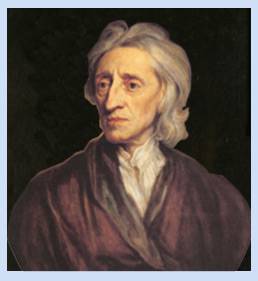
FAQ About John Locke

Who was John Locke?
John Locke was an influential English philosopher, widely regarded as one of the major figures in the development of liberalism during the Enlightenment. He is best known for his works on political philosophy, epistemology, and education.

What are John Locke's most famous works?
John Locke's most famous works include "Two Treatises of Government," "An Essay Concerning Human Understanding," and "A Letter Concerning Toleration." These writings have made significant contributions to political theory and the philosophy of mind.

What did John Locke believe about human understanding?
In his work "An Essay Concerning Human Understanding," John Locke proposed that human knowledge and understanding are shaped by experience and perception. He argued against the notion of innate ideas and believed that the mind starts as a blank slate (tabula rasa).

How did John Locke influence political theory?
John Locke's political theory advocated for the principles of natural rights, government by consent, and separation of powers. His ideas greatly influenced liberal political thought and the framing of modern democratic governments, including the United States Constitution.

What is John Locke's theory of tabula rasa?
John Locke's theory of tabula rasa posits that individuals are born without innate knowledge, and all knowledge comes from experience and sensory perception. This concept was revolutionary in challenging the prevailing ideas of innate knowledge.

Why is John Locke important to the Enlightenment?
John Locke played a crucial role in shaping the Enlightenment ideals by advocating reason, freedom, and equality. His work laid the groundwork for modern political philosophy and influenced numerous Enlightenment thinkers who sought to apply reason to political structures.

How did John Locke's ideas influence the American Revolution?
John Locke's ideas influenced the American Revolution through his concepts of natural rights and government by consent. His writings on liberty and the social contract were echoed in the Declaration of Independence and served as foundational principles for the American political system.

What is Locke's concept of the social contract?
Locke's concept of the social contract is the idea that government is formed by the consent of the governed to protect natural rights such as life, liberty, and property. If a government fails to protect these rights, citizens have the right to overthrow it.

Did John Locke believe in separation of powers?
Yes, John Locke believed in the separation of powers within government as a means to prevent tyranny. He emphasized the division of governmental responsibilities among different branches to ensure checks and balances.

What was John Locke's view on religion and toleration?
John Locke advocated for religious toleration and freedom of conscience in his work "A Letter Concerning Toleration." He argued that civil government should not interfere in matters of religious belief and that individuals should have the liberty to practice their religion as they choose.

How did John Locke's philosophy challenge existing beliefs?
John Locke challenged existing beliefs by rejecting the notion of innate ideas, promoting individual rights, and advocating for the idea that government should operate with the consent of the people. His arguments provided a foundation for questioning traditional authority and sovereignty based on divine right.

Was John Locke involved in politics during his lifetime?
Yes, John Locke was involved in politics, serving as a physician and secretary to the Lord Chancellor, the Earl of Shaftesbury. His political writings were influenced by his experiences and relationships with key political figures of his era.

What impact did John Locke have on education?
John Locke had a significant impact on education with his work "Some Thoughts Concerning Education," where he emphasized practical learning, moral education, and the importance of developing reasoning skills in children. His views laid the foundation for modern progressive educational practices.

How did John Locke influence classical liberalism?
John Locke influenced classical liberalism by advocating for individual liberties, private property rights, and limited government intervention. His ideas provided a philosophical grounding for the development of free-market policies and democratic governance.

What did John Locke mean by 'government by consent'?
'Government by consent' refers to Locke's idea that legitimate government authority is derived from the consent of the governed. According to Locke, rulers must have the approval of the citizens they govern, and political authority should reflect the wishes of the people.

How are John Locke's ideas reflected in modern government?
John Locke's ideas are reflected in modern governments through principles such as constitutionalism, protection of individual rights, and representative democracy. His influence is evident in the political systems of many democratic countries, notably the United States.

Did John Locke influence economic theory?
While John Locke is not primarily known for contributions to economic theory, his ideas on property rights and individual liberty have influenced economic thought, particularly in relation to market freedom and capitalism.

What was John Locke's background and education?
John Locke was born in 1632 in Wrington, Somerset, England. He studied at Westminster School and later at Christ Church, Oxford, where he pursued studies in medicine and philosophy. His education influenced his philosophical outlook and writings.

Did John Locke's ideas face opposition?
Yes, John Locke's ideas faced opposition, particularly from advocates of innate knowledge and those who supported divine right monarchy. His challenges to traditional authority and promotion of individual rights were controversial during his time.

How did John Locke's philosophy impact modern psychology?
John Locke's philosophy impacted modern psychology through his exploration of the mind as a blank slate. His ideas on experience and perception influenced later psychological theories on learning, cognition, and personality formation.
